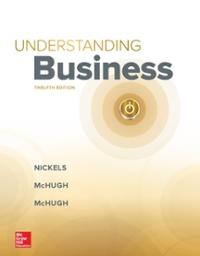
Plz help here
Question 4: Consider the following game between an incumbent monopolist (M), a potential entrant {E}, and two buyers called buyer A and buyer B. Our rem interest is in the situation that is an extensive form game where M olfers eeclusise contract to the buyers, but we rst describe what happens in the absence of such contracts. In that case, if E does not enter then M makes prot tr\" 3.:- 0 per buyer. Each buyer after purchasing from M has payoff 5,\"; Es prot is zero. If E enters, each buyer obtains payoff SE, with He :5 Sm, from buying from E rather than from M; M therefore has zero prot. E has a xed cost of entry F and gross {i.e., without subtracting entry cost} prot per buyer equal to erg. We assume 4:} s5 try: at F 11'. Eng; in other words E makes a loss ifit has only one {or no) buyer but makes a positive prot if E can sell to both customers. Finally, we assume that TIM s: SE 5',\" but 211M } SE Sm. We now come to the exteusive form game where M makes o'ers of exclusive contracts. By denition, if a buyer accepts this contract then the buyer has to buy from M and cannot buy from anyone else. So, here is the verbal description of the extensive form game. First, M offers a an exclusive contract. If it accepts M's offer then it's payoff is 511.3 + ta, with Li 2:- D. M does not ask E if a accepts and it is then E's turn - after having observed all the past moves - to decide whether to enter or not. If A rejects, then M o'ers B an exclusive contract that gives B a payoff SM + 3 if E accepts. Assume t3 2::- Su 3,\". After B accepts or rejects, E decides - again after having observed all the past moves - whether to enter or not. Note that if entry does not happen then a buyer without an exclusive contract - either because the buyer had not blu- asked by M, or had refused M's offer when asked - obtains a payoff equal to Sne. When entry happens, buyer i receives a payoff Sne + t; if i had accepted M's contract and S. if i had not and can therefore buy from E. Solve for the Subgame Perfect Equilibrium using backward induction. To help you arrive at the solution, the analysis is broken up into the following parts. i. Does E enter if at least one buyer has accepted M's offer? Explain in words. ii. Does buyer B accept or reject M's offer if asked by M? Explain in words. iii. Does buyer A accept or reject M's offer when asked by M? Explain in words. iv. What is the equilibrium outcome? Argue that M's profit is 2xM -tA in this equilibrium. v. Since tA > 0 can be arbitrarily small, the incumbent monopolist deters entry at al- most zero cost. Explain very briefly the importance of the fact that the monopolist approaches the buyers sequentially rather than simultaneously









